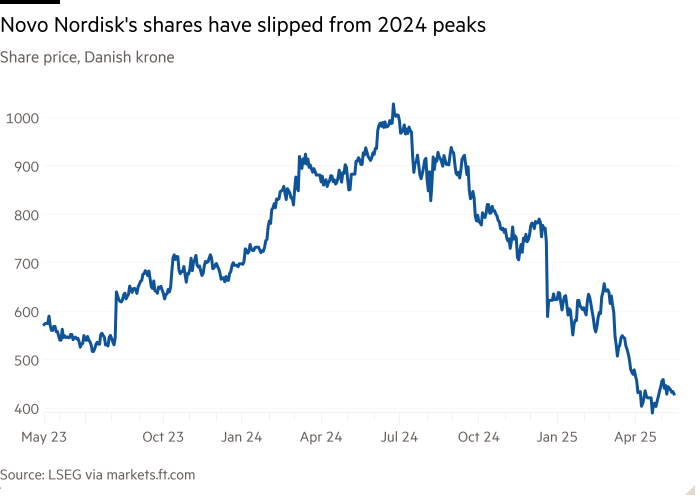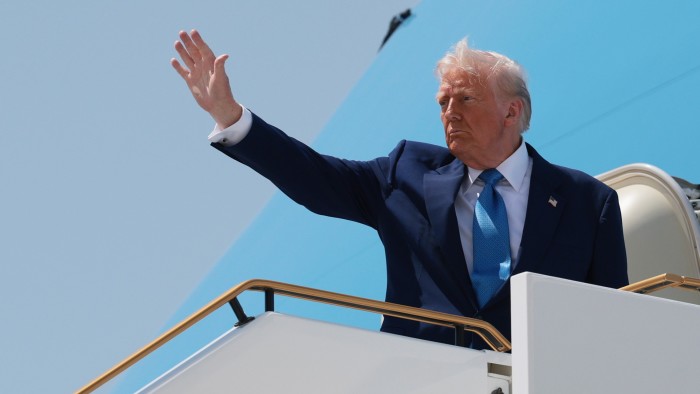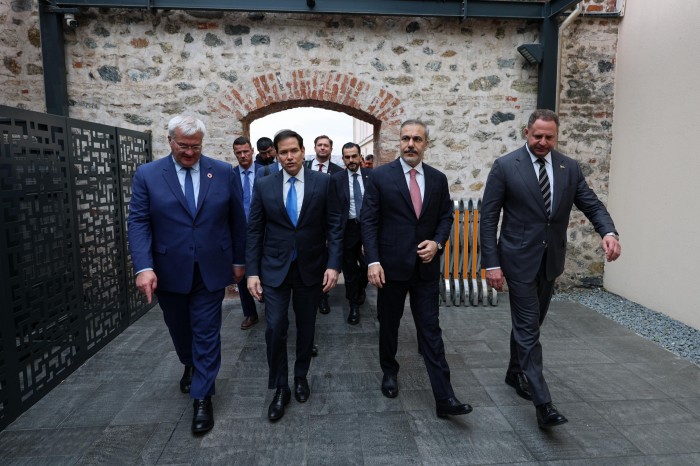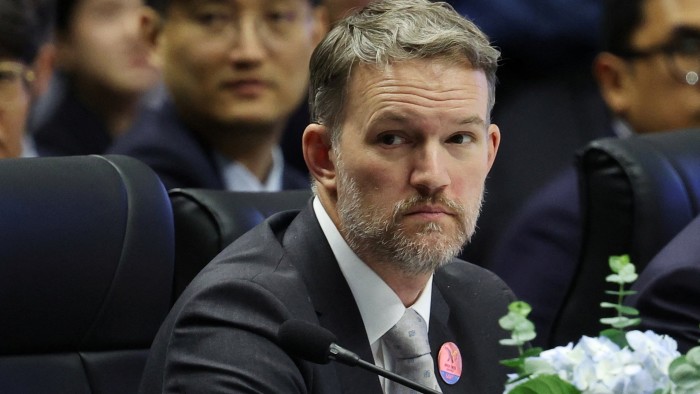Novo Nordisk ousts boss as Ozempic maker battles slump

Unlock the Editor’s Digest for free
Roula Khalaf, Editor of the FT, selects her favourite stories in this weekly newsletter.
Novo Nordisk has ousted chief executive Lars Fruergaard Jørgensen as the maker of pioneering obesity drug Ozempic battles a slump in profit growth, declining market share and a plunging stock price.
Shares in the drugmaker have fallen more than 50 per cent in the past 12 months, causing it to lose its crown as Europe’s largest listed company by market capitalisation after peaking at $650bn last year.
Investors are concerned that its obesity and diabetes drugs are losing ground to US rival Eli Lilly, and have been disappointed by trial results from next-generation medicines in its pipeline.
“Considering the recent marketchallenges, the share price decline and the wish from the Novo Nordisk Foundation, the Novo Nordisk board and Lars Fruergaard Jørgensen have jointly concluded that initiating a CEO succession is in the best interest of the company and its shareholders,” Novo said.
Jørgensen said he was surprised that he had been asked to step down, but respected the decision. He told the Financial Times he did not regret the choices he had made as chief executive, adding that “it’s easy with hindsight to look back and see things that didn’t turn out exactly as intended”.
Last week, the company cut sales and profit forecasts for the year, blaming the rapid expansion of replica drugs in the US. These cheaper alternatives — sold by so-called compounding pharmacies — were temporarily allowed when there was a shortage of the drugs.
Investors hoped that Novo would win some patients from the compounders on the back of a ban this month on most compounders making the replica drugs. But Novo also risks losing some of its customers to Eli Lilly’s new drugs, eroding the advantage it has built.
Analysts are unsure how many patients will switch from compounders to Novo, because some compounders intend to continue making versions they believe will still be allowed, such as alternative doses or drugs compounded with vitamins. Other compounders have been encouraging patients to stockpile the cheaper versions.
Novo said sales growth for this year was expected to be between 13 and 21 per cent at constant exchange rates, compared with earlier guidance of between 16 and 24 per cent. It forecast operating profit growth of between 16 and 24 per cent, compared with a previous range of between 19 and 27 per cent.
Jørgensen has led the drugmaker for eight years, during which time the share price has tripled as it capitalised on excitement over the first wave of effective obesity drugs, with its Wegovy and Ozempic products.
In its statement on Friday, Novo noted concern about the company’s share price “since mid-2024”. Shares fell 21 per cent in one day in late December when the company announced that its follow-up obesity drug CagriSema had missed its target in a late-stage clinical trial.
One investor in Novo said the company had several recent “cock-ups”, including not telling the market in advance about an unusual trial design partly responsible for CagriSema missing its target.
“I can see why they would want a new pair of eyes,” he said.
But he added that a new leader would struggle to improve the drugmaker’s outlook, even if the company picks an outsider.
“Lilly’s product is better and that is not an easy fix,” he said.
Another healthcare investor said ousting Jørgensen over “short-term share price moves” seemed “pretty brutal” given his role in “one of the best drug launches, or strategies, we have seen over a number of years”.
Jørgensen said it was natural that Novo would lose market share as competitor drugs come on the market. “We have a 100-year history of competing with Lilly, and I feel that we have strong ability to keep competing successfully with Lilly,” he said.
Novo said it would make an announcement about its search for a chief executive “in due course”. Jørgensen would continue in his role for a period to ensure a smooth transition, it added.
The Novo Nordisk Foundation, which is the majority owner of the company through Novo Holdings, is increasing its representation on the board. Lars Rebien Sørensen, the foundation’s chair, will begin to participate in board meetings immediately.
Jørgensen said he was “proud of the results” he had produced at the company along with colleagues “who work every day to drive change to defeat serious chronic diseases”.
Shares in Novo fell after the announcement, trading 4.4 per cent lower.
Helge Lund, Novo’s chair, is also the chair of UK oil major BP, which is facing immense activist pressure from US hedge fund Elliott Management.








